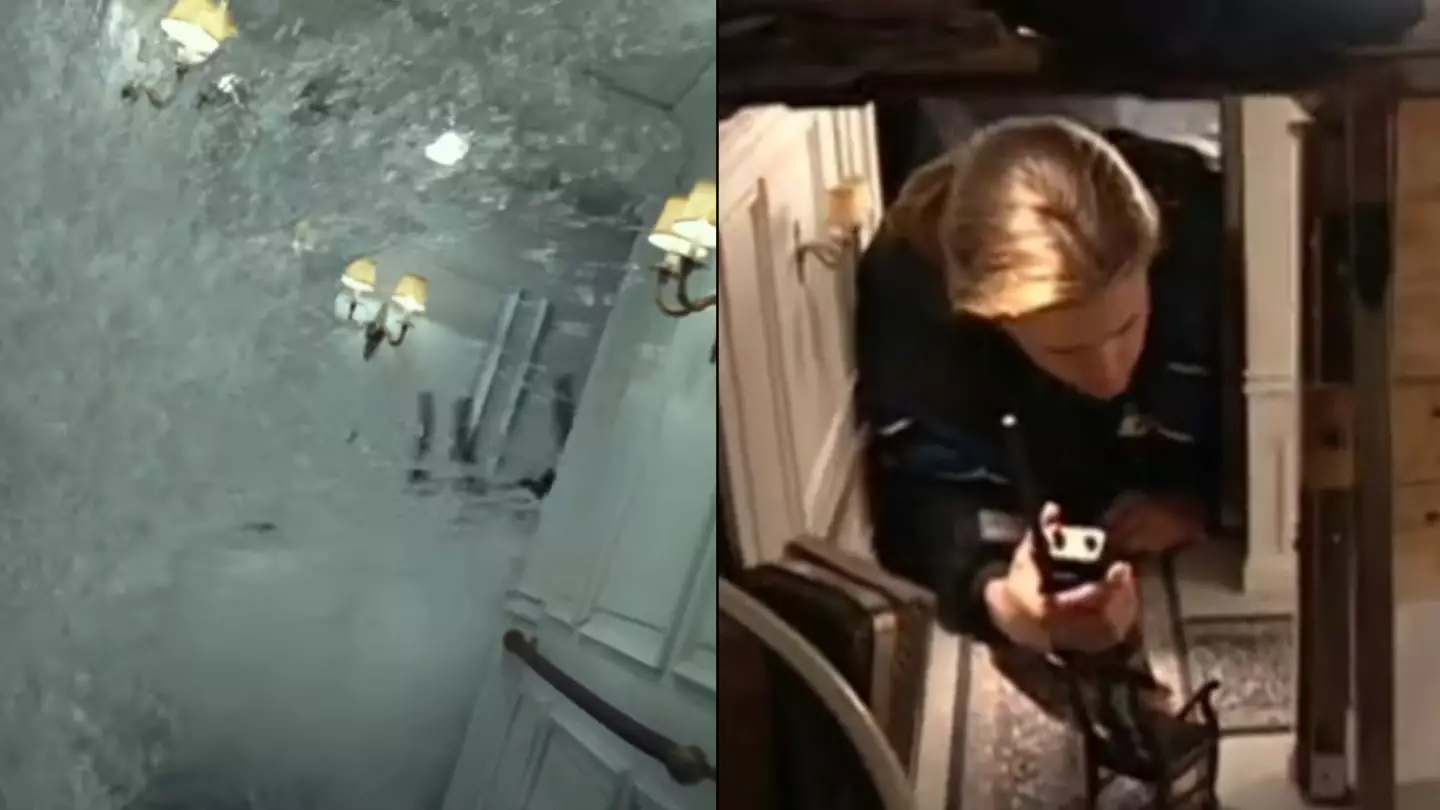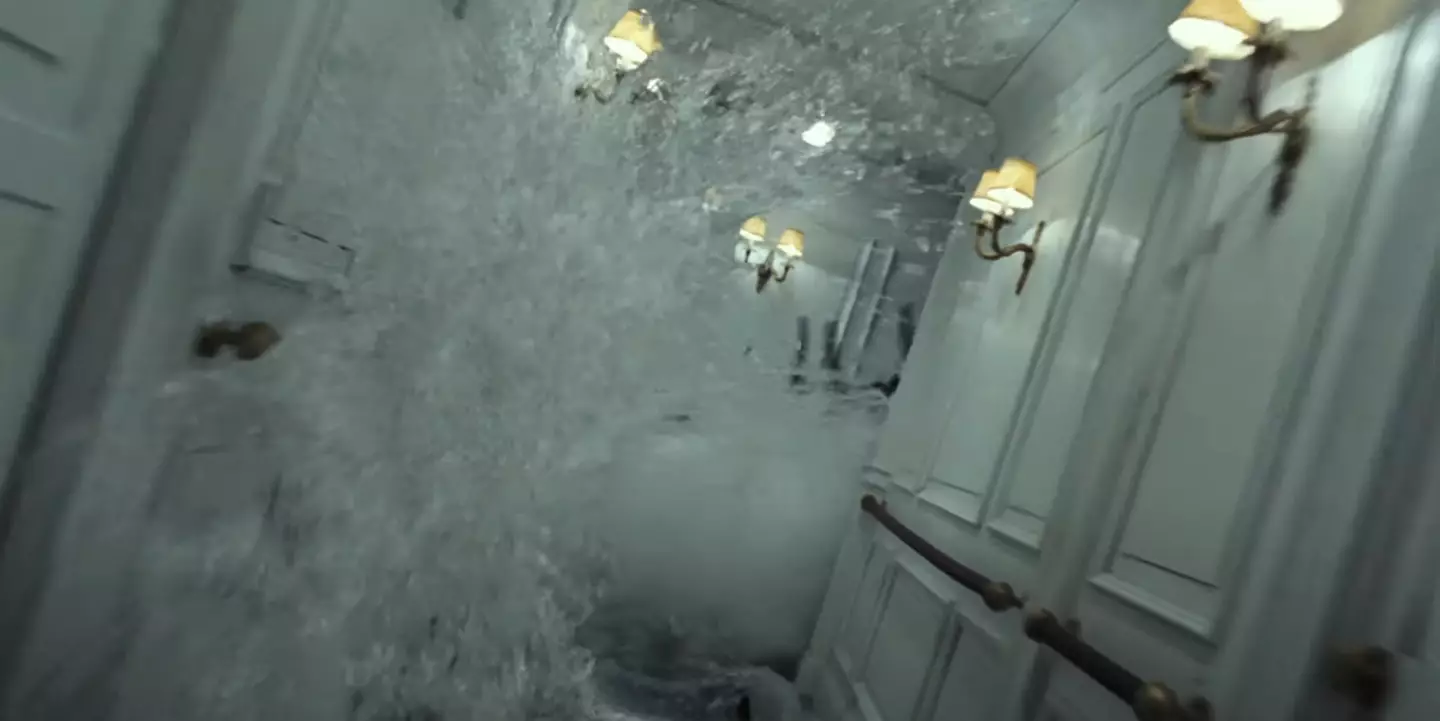
Here is the clever way in which Titanic director James Cameron filmed some of the most famous scenes from the film.
Nearly 30 years have passed since the iconic romance-disaster flick premiered in cinemas, bringing the 1912 tragedy to the forefront of popular culture and turning Kate Winslet and Leonardo DiCaprio into household names.
But have you ever wondered how Cameron and his team were able to make the RMS Titanic’s watery fate look so realistic?
Well, it turns out they had quite a few clever tricks up their sleeves.
Unlike modern day blockbusters which are able to rely heavily on special effects; Titanic was made during an era of cinema where CGI was still in its infancy, which meant the team had to get creative with their filming techniques.
One of the most famous shots from the film featured water pummelling through interior hallways on the lower decks of the ship while terrified passengers scrambled to make it on to the last available lifeboats.
The hallway scene looks pretty terrifying and very realistic right?
Well it would be, if you were the size of a doll.
During a behind-the-scenes featurette on how Titanic came to be, the film’s model crew chief, Gene Rizzardi, revealed the moment was created using a dolls house and then flushing the tiny set with water from a series ‘very large drop tanks’.
A camera was then quickly pulled down the hallway to capture the desired effect.
“The hallway was really fun,” Rizzardi explained. “Even to this day when I show people pictures, they think it’s a real hallway… it was only quarter scale.”

Remember this scene? (20th Century Fox)
The clip has since circulated across social media over the years, with the reactions ranging from shock and the obvious jokes about ‘miniature actors’.
However, several Titanic fans have been keen to point out that the creative filming techniques were part of what made the film special.
“That would be done 100% cgi nowadays and it would be missing a bit of that movie magic feel,” one person commented on the moment.
“Late 90s was peak special affects in movies. Balance of cgi and natural sets,” another replied.
But fans shouldn’t feel too disappointed about the small-scale sets, as a life-size 775ft replica of the ship was also used during filming.
The replica was split into different sections, which allowed the production team to tilt different sections when needed in order to create the illusion that DiCaprio and Winslet’s Jake and Rose were really running for their lives through a sinking ship.
No wonder Titanic earned the title of ‘most expensive film made’ at the time of its release, thanks to its production budget of $200 million (£157).
Featured Image Credit: 20th Century Fox
Topics: Titanic, TV and Film, Film


